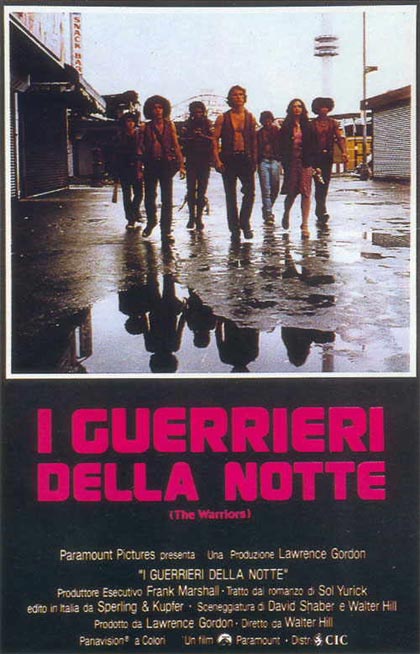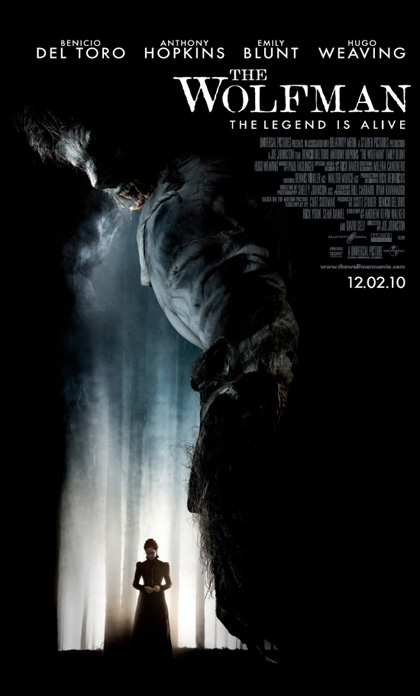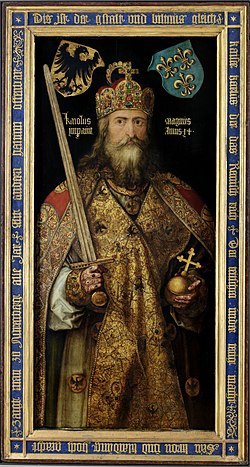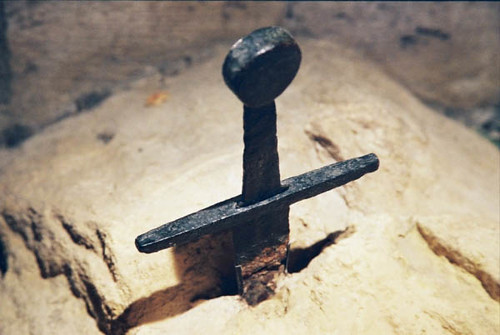Henry Lee Lucas (August 23, 1936[1] – March 13, 2001[2]) was an American criminal, convicted of murder in 11 different cases and once listed as America's most prolific serial killer; he later recanted his confessions, and flatly stated "I am not a serial killer" in a letter to researcher Brad Shellady.[3] Lucas confessed to involvement in about 600 murders, but a more widely circulated total of about 350 murders committed by Lucas is based on confessions deemed "believable" by a Texas-based Lucas Task Force, a group which was later criticized by then-Attorney General of Texas, Jim Mattox, and others for sloppy police work and taking part in an extended "hoax."[4]
Beyond his recantation, some of Lucas' confessions have been challenged as inaccurate by a number of critics, including law enforcement and court officials. Lucas claimed to have been initially subjected to poor treatment and coercive interrogation tactics while in police custody, and to have confessed to murders in an effort to improve his living conditions. Amnesty International reported "the belief of two former state Attorneys General that Lucas was in all likelihood innocent of the crime for which he was sentenced to death."[5]
Lucas's sentence was commuted to life in prison in 1998 by then-Governor George W. Bush. It remains the only successful commutation of a death sentence in Texas since the re-institution of the death penalty in Texas in 1982. Lucas died in prison of natural causes. Lucas still maintains a reputation, in the words of author Sarah L. Knox, "as one of the world's worst serial killers—even after the debunking of the majority of his confessions by the Attorney General of Texas."[6]
Beyond his recantation, some of Lucas' confessions have been challenged as inaccurate by a number of critics, including law enforcement and court officials. Lucas claimed to have been initially subjected to poor treatment and coercive interrogation tactics while in police custody, and to have confessed to murders in an effort to improve his living conditions. Amnesty International reported "the belief of two former state Attorneys General that Lucas was in all likelihood innocent of the crime for which he was sentenced to death."[5]
Lucas's sentence was commuted to life in prison in 1998 by then-Governor George W. Bush. It remains the only successful commutation of a death sentence in Texas since the re-institution of the death penalty in Texas in 1982. Lucas died in prison of natural causes. Lucas still maintains a reputation, in the words of author Sarah L. Knox, "as one of the world's worst serial killers—even after the debunking of the majority of his confessions by the Attorney General of Texas."[6]
Early life
Lucas was born in a one-room log cabin in Blacksburg, Virginia, the youngest of nine children. His mother, Viola Dixon Waugh, was an alcoholic prostitute. His father, Anderson Lucas, was an alcoholic and former railroad employee who had lost his legs after being hit by a freight train. He would usually come home inebriated, and would suffer from Viola's wrath as often as his sons.
Lucas claimed that he and his brother were regularly beaten by Viola, often for no reason. He once spent three days in a coma after his mother struck him with a wooden plank, and on many occasions he was forced by his mother to watch her having sex with men. Lucas also claimed that his mother would often dress him in girls' clothing. His sister Almeda Lucas supports his story, and she claims that she once had two pictures of Henry as a toddler dressed in girls' clothing. Lucas described an incident when he was given a mule as a gift by his uncle, only to see his mother shoot and kill it. Lucas also claimed that, at the age of eight, he was given a teddy bear by one of his teachers, and was then beaten by his mother for accepting charity.
When Lucas was 10, his brother accidentally stabbed him in the left eye while they were fighting. His mother ignored the injury for four days, and subsequently the eye grew infected and had to be replaced by a glass eye.
In December 1949, Anderson Lucas died of hypothermia, after going home drunk and collapsing outside during a blizzard. Shortly after, Henry dropped out of school in the sixth grade and ran away from home, drifting around Virginia. Lucas claimed that he first practiced bestiality and zoosadism while he was a runaway, and also began committing petty thefts and burglaries around the state. Lucas claimed to have committed his first murder in 1951, when he strangled 17-year-old Laura Burnsley, who refused his sexual advances. As with most of his confessions, he later retracted this claim. On June 10, 1954, Lucas was convicted on over a dozen counts of burglary in and around Richmond, Virginia, and was sentenced to four years in prison. He escaped in 1957, was recaptured three days later, and was released on September 2, 1959.
In late 1959, Lucas traveled to Tecumseh, Michigan to live with his half-sister, Opal. Around this time, Lucas was engaged to marry a pen pal with whom he had corresponded while incarcerated. When his mother visited him for Christmas, she disapproved of her son's fiancée and insisted he move back to Blacksburg. He refused, and they argued repeatedly about his upcoming nuptials.
[edit] First known murder
On January 11, 1960, in Tecumseh, Michigan, Lucas killed his mother during the course of an ongoing argument regarding whether or not he should return home to his mother's house to care for her as she grew older. He claimed she struck him over the head with a broom, at which point he struck her on the neck and she fell. Lucas then fled the scene. He subsequently said,
“
All I remember was slapping her alongside the neck, but after I did that I saw her fall and decided to grab her. But she fell to the floor and when I went back to pick her up, I realized she was dead. Then I noticed that I had my knife in my hand and she had been cut.
”
She was not in fact dead, and when Lucas's half-sister Opal (with whom he was staying) returned later, she discovered their mother alive in a pool of blood. She called an ambulance, but it turned out to be too late to save Viola Lucas's life. The official police report stated she died of a heart attack precipitated by the assault. Lucas returned to Virginia, then says he decided to drive back to Michigan, but was arrested in Ohio on the outstanding Michigan warrant.
Lucas claimed to have attacked his mother only in self-defense, but his claim was rejected, and he was sentenced to between 20 and 40 years' imprisonment in Michigan for second-degree murder. After serving 10 years in prison, he was released in June 1970 due to prison overcrowding.
Lucas was born in a one-room log cabin in Blacksburg, Virginia, the youngest of nine children. His mother, Viola Dixon Waugh, was an alcoholic prostitute. His father, Anderson Lucas, was an alcoholic and former railroad employee who had lost his legs after being hit by a freight train. He would usually come home inebriated, and would suffer from Viola's wrath as often as his sons.
Lucas claimed that he and his brother were regularly beaten by Viola, often for no reason. He once spent three days in a coma after his mother struck him with a wooden plank, and on many occasions he was forced by his mother to watch her having sex with men. Lucas also claimed that his mother would often dress him in girls' clothing. His sister Almeda Lucas supports his story, and she claims that she once had two pictures of Henry as a toddler dressed in girls' clothing. Lucas described an incident when he was given a mule as a gift by his uncle, only to see his mother shoot and kill it. Lucas also claimed that, at the age of eight, he was given a teddy bear by one of his teachers, and was then beaten by his mother for accepting charity.
When Lucas was 10, his brother accidentally stabbed him in the left eye while they were fighting. His mother ignored the injury for four days, and subsequently the eye grew infected and had to be replaced by a glass eye.
In December 1949, Anderson Lucas died of hypothermia, after going home drunk and collapsing outside during a blizzard. Shortly after, Henry dropped out of school in the sixth grade and ran away from home, drifting around Virginia. Lucas claimed that he first practiced bestiality and zoosadism while he was a runaway, and also began committing petty thefts and burglaries around the state. Lucas claimed to have committed his first murder in 1951, when he strangled 17-year-old Laura Burnsley, who refused his sexual advances. As with most of his confessions, he later retracted this claim. On June 10, 1954, Lucas was convicted on over a dozen counts of burglary in and around Richmond, Virginia, and was sentenced to four years in prison. He escaped in 1957, was recaptured three days later, and was released on September 2, 1959.
In late 1959, Lucas traveled to Tecumseh, Michigan to live with his half-sister, Opal. Around this time, Lucas was engaged to marry a pen pal with whom he had corresponded while incarcerated. When his mother visited him for Christmas, she disapproved of her son's fiancée and insisted he move back to Blacksburg. He refused, and they argued repeatedly about his upcoming nuptials.
[edit] First known murder
On January 11, 1960, in Tecumseh, Michigan, Lucas killed his mother during the course of an ongoing argument regarding whether or not he should return home to his mother's house to care for her as she grew older. He claimed she struck him over the head with a broom, at which point he struck her on the neck and she fell. Lucas then fled the scene. He subsequently said,
“
All I remember was slapping her alongside the neck, but after I did that I saw her fall and decided to grab her. But she fell to the floor and when I went back to pick her up, I realized she was dead. Then I noticed that I had my knife in my hand and she had been cut.
”
She was not in fact dead, and when Lucas's half-sister Opal (with whom he was staying) returned later, she discovered their mother alive in a pool of blood. She called an ambulance, but it turned out to be too late to save Viola Lucas's life. The official police report stated she died of a heart attack precipitated by the assault. Lucas returned to Virginia, then says he decided to drive back to Michigan, but was arrested in Ohio on the outstanding Michigan warrant.
Lucas claimed to have attacked his mother only in self-defense, but his claim was rejected, and he was sentenced to between 20 and 40 years' imprisonment in Michigan for second-degree murder. After serving 10 years in prison, he was released in June 1970 due to prison overcrowding.
Drifter
Lucas drifted around the American South, working a number of mostly short-term jobs. In Florida, he made the acquaintance of Ottis Toole in 1976 and had a romantic affair with Toole's 12-year-old niece, Frieda Powell, who had escaped from a juvenile detention facility. Lucas and Toole both called Powell "Becky," partly to disguise her identity and because Powell preferred it over her given name. In 1978, Lucas and Toole formed what has been called a "homosexual crime team" and embarked on a cross-country murder spree.[8] Lucas would later claim that during this period he had killed hundreds of people, with Toole assisting him in 108 murders. The trio left Florida and eventually settled in Stoneburg, Texas, at a religious commune called "The House of Prayer." Ruben Moore, the commune owner and minister, found Lucas a job as a roofer, and allowed Lucas and Powell to live in a small apartment on the commune.
Powell became homesick, so Lucas agreed to move to Florida with her. Lucas said they argued at a Bowie, Texas truck stop and claimed that Powell left with a trucker. A waitress at the truck stop supported Lucas's account in court.[4] Lucas allegedly carried out many of his later murders with Toole as an accomplice.
[edit] "The Lucas Report" confessions and controversy
Lucas was arrested on June 11, 1983 by Texas Ranger Phil Ryan, initially for unlawful firearm possession.[9] He was later charged with killing 82-year-old Kate Rich in Ringgold, Texas, and was also charged with Powell's murder. Lucas claimed that police stripped him naked, denied him cigarettes and bedding, held him in a cold cell, and did not allow him to contact an attorney. After four days of this treatment, Lucas claimed he decided to confess to the crimes in a desperate bid to improve his treatment. Lucas confessed to the murders but claimed to be unable to take police to the victims' bodies. He closed out his confession with a hand-written addendum that read:[10] "I am not aloud [sic] to contact any one I'm in here by myself and still can't talk to a lawyer on this I have no rights so what can I do to convince you about all this." When he was finally allowed counsel, Lucas's lawyer described[10] his client's treatment as "inhumane" and "calculated solely to require the defendant to confess guilt, whether innocent or guilty."
The forensic evidence in the Powell and Rich cases has been criticized as inconclusive.[11] A single bone fragment recovered from a wood-burning stove was said to be Rich's, and a mostly-complete skeleton roughly matched Powell's age and size, but Shellady reports that the coroner stopped short of positively identifying either remains. As with most of his alleged crimes, Lucas has confessed to these murders only to deny involvement later, but the general consensus seems to be that Lucas did indeed murder Powell and Rich. Lucas pleaded guilty to the charges, and in open court stated he had "killed about a hundred more women" as well. This was an unexpected confession, and Lucas later claimed to have been despondent over being suspected in Powell's disappearance. Shellady reports[4] that Lucas said, "If they were going to make me confess to one I didn't do, then I was going to confess to everything." These claims were quickly seized upon by the press, and Lucas, accompanied by Texas Rangers, was soon flown from state to state, to meet with various police agencies in an effort to resolve a number of unsolved murders.
In November 1983, Lucas was transferred to a jail in Williamson County, Texas, where the Lucas Task Force was soon established. While in Williamson County, he was interviewed by then-Sheriff Jim Boutwell. Boutwell is said to have played an important role early in the task force as well as Bob Prince of the Texas Rangers. Shellady describes the task force as "a veritable clearinghouse of unsolved murder." Police officially "cleared" 213 previously unsolved murders via Lucas's confessions. Lucas reported that he confessed to murders only because doing so improved his living conditions, and that he received preferential treatment rarely offered to convicts. Others have offered accounts that seem to support Lucas's claims, for example, that Lucas was rarely handcuffed when in custody or being transported, that he was often allowed to wander police stations and jails at will—including knowing the security codes for computerized doors—and that he was frequently taken to restaurants and cafés. It was later learned that Boutwell and other task force agents purposely fed Lucas information about other unsolved murders so that Lucas would make "credible" confessions. Lucas was also granted favors while incarcerated that other inmates never received.[12] On one occasion, in Huntington, West Virginia, Lucas confessed to killing a man whose death had originally been ruled a suicide. The man's widow received a large life insurance settlement that had been denied after the initial suicide verdict.
Texas Ranger Phil Ryan reports that Lucas became so accustomed to such treatment that he began "dictating orders" that were often obeyed by Rangers. Ryan also reported that he became concerned about the veracity of most of Lucas's confessions, feeling confident in the accuracy of two of Lucas' confessions, and further stated to the Houston Chronicle that "I wouldn't bet a paycheck on any of the others."[13] Shellady reports that in order to expose Lucas's claims, Ryan invented utterly fictional crimes, to which Lucas would generally "confess" involvement, a tactic also employed by Dallas detective Linda Erwin. Ryan reports the manner in which Lucas typically confessed to a number of unsolved murders: If a police agency suspected Lucas, and if Lucas admitted involvement—and his total of some 3,000 confessions suggests he rarely denied complicity—they would send the Lucas Task Force a case file with information pertaining to the unsolved crime. Lucas would be questioned at length and sometimes even allowed to read police reports, thus learning any number of details previously known only to police, which he could then use during interviews.
The same Houston Chronicle article reports that Erwin interviewed Lucas after he confessed to 13 murders in Houston. Erwin reports that "when I heard it got to be hundreds and hundreds (of confessions), it was unbelievable to me." Erwin further reports that, like Ryan, she assembled an utterly fictional crime: She "fabricated a case using random photographs from old murders long since solved and details pulled from her imagination ... He claimed credit for the phony crime, and his confession, containing facts she had dribbled out to him, probably could have convinced a jury to convict him, she said." Erwin admitted she was uncomfortable fabricating a crime, but felt it necessary in order to settle questions of Lucas's reliability. Lucas was not charged with any of the crimes he confessed to committing in Dallas.
Lucas' claims gradually became criticized as outlandish and less likely: He claimed to have been part of a cannibalistic, satanic cult called "The Hand of Death",[6] to have taken part in snuff films, to have killed Jimmy Hoffa, and to have delivered poison to cult leader Jim Jones in Jonestown prior to the notorious mass murder/suicide of Jones' group.
In response to these claims, and to reports of the Lucas Task Force's questionable investigative methodology, the Texas Attorney General's office issued a study (sometimes called "The Lucas Report") in 1986.[14] The bulk of the Lucas Report was devoted to a detailed timeline of Lucas' claimed murders. The report compared Lucas' claims to reliable, verifiable sources for his whereabouts; the results often contradicted his confessions, and thus cast doubt on most of the crimes in which he was implicated. Attorney General Jim Mattox wrote that "when Lucas was confessing to hundreds of murders, those with custody of Lucas did nothing to bring an end to this hoax," and "We have found information that would lead us to believe that some officials 'cleared cases' just to get them off the books."[10]
[edit] Orange Socks murder
Ultimately, Lucas was convicted of 11 homicides. He was sentenced to death for the murder of an unidentified woman dubbed "Orange Socks," as those were the only items of clothing found on her. Her body was discovered in Williamson County, Texas, on Halloween 1979.
Dan Morales, Mattox's successor as Texas Attorney General, concluded that it was "highly unlikely" that Lucas was guilty in the "Orange Socks" case.[15] Though initially skeptical of the Lucas Report, he came generally to support its findings.
Williamson County prosecutor Cecil Kuykendall discounted Lucas as a suspect in the "Orange Socks" case and has stated his opinion that Lucas' confession drew attention from a far more viable suspect, further noting evidence that Lucas was in Florida, working as a roofer, during the time that "Orange Socks" was killed. As cited in an Amnesty International report, Mattox stated that during the time "Orange Socks" was killed, there were "work records, check cashing evidence, all information indicating Lucas was somewhere else. We found nothing tying [Lucas] with the crime he confessed to and was convicted of."[16] Mattox's office decided not to intervene, so certain they were that the state appeals court would overturn Lucas' conviction in the "Orange Socks" case.
Lucas told Shellady that he confessed to the murder in an effort at "legal suicide," and that he "just wanted to die." Lucas expressed what Shellady describes as "deep regret and sorrow" for offering false confessions, stating that he "was not aware how crooked they [Texas authorities] were until it was too late." The Houston Chronicle article also notes that Lucas offered various motives for his confession spree: Improving his conditions, a desire to embarrass police, and feeling guilt over killing Powell and Rich.
Adding to the confusion, however, was Lucas' habit of making confessions, recanting them, then offering more confessions, and again recanting them. Mattox, wary of Lucas' many false confessions, suggested in 1999 that, in the case of Rafael Resendez-Ramirez, "I hope they don't start pinning on him every crime that happens near a railroad track."[17]
[edit] Clemency and death
Lucas' supposed confidant, Ottis Toole, died on September 15, 1996, from cirrhosis of the liver. He was serving six life sentences in a Florida prison. In 1998, the Texas Board of Pardon and Parole voted to commute Lucas' death sentence to life imprisonment, in accordance with Governor George W. Bush's request. It remains the only successful commutation of a death sentence in Texas since the restoration of the death penalty after Gregg v. Georgia in 1976. On March 13, 2001, Lucas died in prison from heart failure at age 64.
[edit] Differing opinions
Several authorities and interested parties remained sure of Lucas' guilt in a number of murders, regardless of his recantations and the controversy surrounding his many confessions. Jim Lawson, a sheriff's department investigator in Scotts Bluff County, Nebraska, questioned Lucas in September 1984 regarding the unsolved 1978 murder of schoolteacher Stella McLean. Lawson says he asked deceptive questions to test Lucas, but insists Lucas offered compelling testimony to support his claims of killing McLean.[18]
Texas General Land Office Commissioner Garry Mauro, then standing for election of Governor of Texas, stated his opinion that, "There is no doubt in my mind that Henry Lee Lucas is guilty enough of the murders he confessed to that he earned the death penalty."[19]
The Houston Chronicle article quotes Harold Murphy of Marianna, Florida, who remained convinced that Lucas killed his daughter Jerilyn in 1981.
As cited in the above Houston Chronicle article, Texas Ranger Phil Ryan—while strongly criticizing the Lucas Task Force for their questionable methods, and while rejecting the vast majority of Lucas's confessions—concluded that Lucas was a strong suspect in two cases (those of his 15-year-old traveling companion, Becky Powell, and Kate Rich), and thought Lucas was "at most ... responsible for 15 murders." This was still a considerable total, qualifying Lucas as a serial killer according to the FBI's definitions, but well below Lucas's claims. Eric W. Hickey cites an unnamed "investigator" who interviewed Lucas several times, and who concluded Lucas had probably killed about 40 people.[20]
[edit] See also
List of serial killers by number of victims
List of horror film serial killers
[edit] Further reading
Sara L. Knox, "The Productive Power of Confessions of Cruelty" 2001 [21]
Brad Shellady, "Henry: Fabrication of a Serial Killer", included in Everything You Know Is Wrong: The Disinformation Guide to Secrets and Lies, 2002; Russ Kick, editor.
Michael A. Kroll, "Condemned in Texas: When Innocence Doesn't Matter", 1998 [22]
"The Death Penalty In Texas: Lethal Injustice", Amnesty International, 1998 [23]
"Failing the Future: Death Penalty Developments, March 1998 – March 2000" Amnesty International, 2000 [24]
"Henry Lee Lucas able to confuse authorities and then beat death", Jim Henderson, 1998 Houston Chronicle [25]
"Sheriff's wife among 4 dead in shooting", Melissa Nelson, 2007 Associated Press (Yahoo News) [26]
[edit] References
^ "Henry Lee Lucas by Bonnie Bobit". Crimemagazine.com. Archived from the original on June 19, 2008. http://web.archive.org/web/20080619040846/http://www.crimemagazine.com/lucas.htm. Retrieved 2010-07-12.
^ "Henry Lee Lucas Dies in Prison — ABC News". Abcnews.go.com. http://abcnews.go.com/US/story?id=93864&page=1. Retrieved 2010-07-12.
^ Brad Shellady, "Henry: Fabrication of a Serial Killer", included in Everything You Know Is Wrong: The Disinformation Guide to Secrets and Lies, 2002; Russ Kick, editor.
^ a b c Shellady, 2002.
^ "USA: Failing the future: Death penalty developments, March 1998 – March 2000 Amnesty International". Web.amnesty.org. 2000-03-31. Archived from the original on October 15, 2007. http://web.archive.org/web/20071015201843/http://web.amnesty.org/library/index/ENGAMR510032000. Retrieved 2010-07-12.
^ a b "Knox, The Productive Power of Confessions of Cruelty". Jefferson.village.virginia.edu. http://jefferson.village.virginia.edu/pmc/issue.501/11.3knox.html. Retrieved 2010-07-12.
^ Ramsland, Katherine. "Henry Lee Lucas, prolific serial killer or prolific liar?". Crime Library. http://www.crimelibrary.com/serial_killers/notorious/henry_lee_lucas/5.html. Retrieved 2008-12-17.
^ "The Twisted Life of Serial Killer Ottis Elwood Toole". Fox News. December 16, 2008. http://www.foxnews.com/story/0,2933,468144,00.html. Retrieved 2008-12-17. "Toole met Lucas in 1978, and the two "joined forces as a homosexual crime team, criss-crossing the country from 1978-1983""
^ "Phil Ryan". Sheriff.co.wise.tx.us. http://www.sheriff.co.wise.tx.us/ryan.htm. Retrieved 2010-07-12.
^ a b c quoted in Shellady, 2002
^ see Shellady, 2002
^ http://www.lrl.state.tx.us/scanned/archive/2009/8145.pdf
^ Henry Lee Lucas able to confuse authorities and then beat death[dead link]
^ "Publication Date April 1986, by Texas Attorney General Jim Mattox" (PDF). http://www.lrl.state.tx.us/scanned/archive/2009/8145.pdf. Retrieved 2010-07-12.
^ "[06-24-98] Michael Kroll, Condemned in Texas — When Innocence Doesn't Matter". Pacificnews.org. http://www.pacificnews.org/jinn/stories/4.13/980624-innocence.html. Retrieved 2010-07-12.
^ "USA: The death penalty in Texas: lethal injustice Amnesty International". Web.amnesty.org. 1998-03-01. Archived from the original on March 7, 2008. http://web.archive.org/web/20080307075611/http://web.amnesty.org/library/index/ENGAMR510101998. Retrieved 2010-07-12.
^ "Today's Headlines — Friday, June 25, 1999". Ble.org. 1999-06-25. http://www.ble.org/pr/archive/headline0625a.html. Retrieved 2010-07-12.
^ "Henry Lee Lucas". Carpenoctem.tv. http://www.carpenoctem.tv/killers/lucas.html. Retrieved 2010-07-12.
^ "USA: Fatal flaws: Innocence and the death penalty in the USA Amnesty International". Web.amnesty.org. 1998-11-12. Archived from the original on October 16, 2007. http://web.archive.org/web/20071016230509/http://web.amnesty.org/library/index/ENGAMR510691998. Retrieved 2010-07-12.
^ Hickey, Eric W., Serial Murderers And Their Victims, Wadsworth Pub Co. 2005; ISBN 0-495-05887-4
^ "Knox, The Productive Power of Confessions of Cruelty". Jefferson.village.virginia.edu. http://jefferson.village.virginia.edu/pmc/issue.501/11.3knox.html#foot6. Retrieved 2010-07-12.
^ "[06-24-98] Michael Kroll, Condemned in Texas — When Innocence Doesn't Matter". Pacificnews.org. http://www.pacificnews.org/jinn/stories/4.13/980624-innocence.html. Retrieved 2010-07-12.
^ "USA: The death penalty in Texas: lethal injustice Amnesty International". Web.amnesty.org. 1998-03-01. Archived from the original on March 7, 2008. http://web.archive.org/web/20080307075611/http://web.amnesty.org/library/index/ENGAMR510101998. Retrieved 2010-07-12.
^ "USA: Failing the future: Death penalty developments, March 1998 – March 2000 Amnesty International". Web.amnesty.org. 2000-03-31. Archived from the original on October 15, 2007. http://web.archive.org/web/20071015201843/http://web.amnesty.org/library/index/ENGAMR510032000. Retrieved 2010-07-12.
^ [1][dead link]
^ [2][dead link]
[edit] External links
Biography of Henry Lee Lucas at Courtroom Television Network's Crime Library
Persondata
Name
Lucas, Henry Lee
Alternative names
Short description
Date of birth
1936-08-23
Place of birth
Blacksburg, Virginia
Date of death
2001-03-13
Place of death
Retrieved from "http://en.wikipedia.org/wiki/Henry_Lee_Lucas"
Categories: 1936 births 2001 deaths 1960 crimes American serial killers American people convicted of murder American prisoners sentenced to death American people who died in prison custody American people with disabilities Crimes involving Satanism or the occult People convicted of murder by Michigan People convicted of murder by Texas Prisoners sentenced to death by Texas Prisoners and detainees of Michigan Matricides People from Blacksburg, Virginia Prisoners who died in Texas detention Deaths from heart failure LGBT people from the United States
Hidden categories: All articles with dead external links Articles with dead external links from July 2010
Lucas drifted around the American South, working a number of mostly short-term jobs. In Florida, he made the acquaintance of Ottis Toole in 1976 and had a romantic affair with Toole's 12-year-old niece, Frieda Powell, who had escaped from a juvenile detention facility. Lucas and Toole both called Powell "Becky," partly to disguise her identity and because Powell preferred it over her given name. In 1978, Lucas and Toole formed what has been called a "homosexual crime team" and embarked on a cross-country murder spree.[8] Lucas would later claim that during this period he had killed hundreds of people, with Toole assisting him in 108 murders. The trio left Florida and eventually settled in Stoneburg, Texas, at a religious commune called "The House of Prayer." Ruben Moore, the commune owner and minister, found Lucas a job as a roofer, and allowed Lucas and Powell to live in a small apartment on the commune.
Powell became homesick, so Lucas agreed to move to Florida with her. Lucas said they argued at a Bowie, Texas truck stop and claimed that Powell left with a trucker. A waitress at the truck stop supported Lucas's account in court.[4] Lucas allegedly carried out many of his later murders with Toole as an accomplice.
[edit] "The Lucas Report" confessions and controversy
Lucas was arrested on June 11, 1983 by Texas Ranger Phil Ryan, initially for unlawful firearm possession.[9] He was later charged with killing 82-year-old Kate Rich in Ringgold, Texas, and was also charged with Powell's murder. Lucas claimed that police stripped him naked, denied him cigarettes and bedding, held him in a cold cell, and did not allow him to contact an attorney. After four days of this treatment, Lucas claimed he decided to confess to the crimes in a desperate bid to improve his treatment. Lucas confessed to the murders but claimed to be unable to take police to the victims' bodies. He closed out his confession with a hand-written addendum that read:[10] "I am not aloud [sic] to contact any one I'm in here by myself and still can't talk to a lawyer on this I have no rights so what can I do to convince you about all this." When he was finally allowed counsel, Lucas's lawyer described[10] his client's treatment as "inhumane" and "calculated solely to require the defendant to confess guilt, whether innocent or guilty."
The forensic evidence in the Powell and Rich cases has been criticized as inconclusive.[11] A single bone fragment recovered from a wood-burning stove was said to be Rich's, and a mostly-complete skeleton roughly matched Powell's age and size, but Shellady reports that the coroner stopped short of positively identifying either remains. As with most of his alleged crimes, Lucas has confessed to these murders only to deny involvement later, but the general consensus seems to be that Lucas did indeed murder Powell and Rich. Lucas pleaded guilty to the charges, and in open court stated he had "killed about a hundred more women" as well. This was an unexpected confession, and Lucas later claimed to have been despondent over being suspected in Powell's disappearance. Shellady reports[4] that Lucas said, "If they were going to make me confess to one I didn't do, then I was going to confess to everything." These claims were quickly seized upon by the press, and Lucas, accompanied by Texas Rangers, was soon flown from state to state, to meet with various police agencies in an effort to resolve a number of unsolved murders.
In November 1983, Lucas was transferred to a jail in Williamson County, Texas, where the Lucas Task Force was soon established. While in Williamson County, he was interviewed by then-Sheriff Jim Boutwell. Boutwell is said to have played an important role early in the task force as well as Bob Prince of the Texas Rangers. Shellady describes the task force as "a veritable clearinghouse of unsolved murder." Police officially "cleared" 213 previously unsolved murders via Lucas's confessions. Lucas reported that he confessed to murders only because doing so improved his living conditions, and that he received preferential treatment rarely offered to convicts. Others have offered accounts that seem to support Lucas's claims, for example, that Lucas was rarely handcuffed when in custody or being transported, that he was often allowed to wander police stations and jails at will—including knowing the security codes for computerized doors—and that he was frequently taken to restaurants and cafés. It was later learned that Boutwell and other task force agents purposely fed Lucas information about other unsolved murders so that Lucas would make "credible" confessions. Lucas was also granted favors while incarcerated that other inmates never received.[12] On one occasion, in Huntington, West Virginia, Lucas confessed to killing a man whose death had originally been ruled a suicide. The man's widow received a large life insurance settlement that had been denied after the initial suicide verdict.
Texas Ranger Phil Ryan reports that Lucas became so accustomed to such treatment that he began "dictating orders" that were often obeyed by Rangers. Ryan also reported that he became concerned about the veracity of most of Lucas's confessions, feeling confident in the accuracy of two of Lucas' confessions, and further stated to the Houston Chronicle that "I wouldn't bet a paycheck on any of the others."[13] Shellady reports that in order to expose Lucas's claims, Ryan invented utterly fictional crimes, to which Lucas would generally "confess" involvement, a tactic also employed by Dallas detective Linda Erwin. Ryan reports the manner in which Lucas typically confessed to a number of unsolved murders: If a police agency suspected Lucas, and if Lucas admitted involvement—and his total of some 3,000 confessions suggests he rarely denied complicity—they would send the Lucas Task Force a case file with information pertaining to the unsolved crime. Lucas would be questioned at length and sometimes even allowed to read police reports, thus learning any number of details previously known only to police, which he could then use during interviews.
The same Houston Chronicle article reports that Erwin interviewed Lucas after he confessed to 13 murders in Houston. Erwin reports that "when I heard it got to be hundreds and hundreds (of confessions), it was unbelievable to me." Erwin further reports that, like Ryan, she assembled an utterly fictional crime: She "fabricated a case using random photographs from old murders long since solved and details pulled from her imagination ... He claimed credit for the phony crime, and his confession, containing facts she had dribbled out to him, probably could have convinced a jury to convict him, she said." Erwin admitted she was uncomfortable fabricating a crime, but felt it necessary in order to settle questions of Lucas's reliability. Lucas was not charged with any of the crimes he confessed to committing in Dallas.
Lucas' claims gradually became criticized as outlandish and less likely: He claimed to have been part of a cannibalistic, satanic cult called "The Hand of Death",[6] to have taken part in snuff films, to have killed Jimmy Hoffa, and to have delivered poison to cult leader Jim Jones in Jonestown prior to the notorious mass murder/suicide of Jones' group.
In response to these claims, and to reports of the Lucas Task Force's questionable investigative methodology, the Texas Attorney General's office issued a study (sometimes called "The Lucas Report") in 1986.[14] The bulk of the Lucas Report was devoted to a detailed timeline of Lucas' claimed murders. The report compared Lucas' claims to reliable, verifiable sources for his whereabouts; the results often contradicted his confessions, and thus cast doubt on most of the crimes in which he was implicated. Attorney General Jim Mattox wrote that "when Lucas was confessing to hundreds of murders, those with custody of Lucas did nothing to bring an end to this hoax," and "We have found information that would lead us to believe that some officials 'cleared cases' just to get them off the books."[10]
[edit] Orange Socks murder
Ultimately, Lucas was convicted of 11 homicides. He was sentenced to death for the murder of an unidentified woman dubbed "Orange Socks," as those were the only items of clothing found on her. Her body was discovered in Williamson County, Texas, on Halloween 1979.
Dan Morales, Mattox's successor as Texas Attorney General, concluded that it was "highly unlikely" that Lucas was guilty in the "Orange Socks" case.[15] Though initially skeptical of the Lucas Report, he came generally to support its findings.
Williamson County prosecutor Cecil Kuykendall discounted Lucas as a suspect in the "Orange Socks" case and has stated his opinion that Lucas' confession drew attention from a far more viable suspect, further noting evidence that Lucas was in Florida, working as a roofer, during the time that "Orange Socks" was killed. As cited in an Amnesty International report, Mattox stated that during the time "Orange Socks" was killed, there were "work records, check cashing evidence, all information indicating Lucas was somewhere else. We found nothing tying [Lucas] with the crime he confessed to and was convicted of."[16] Mattox's office decided not to intervene, so certain they were that the state appeals court would overturn Lucas' conviction in the "Orange Socks" case.
Lucas told Shellady that he confessed to the murder in an effort at "legal suicide," and that he "just wanted to die." Lucas expressed what Shellady describes as "deep regret and sorrow" for offering false confessions, stating that he "was not aware how crooked they [Texas authorities] were until it was too late." The Houston Chronicle article also notes that Lucas offered various motives for his confession spree: Improving his conditions, a desire to embarrass police, and feeling guilt over killing Powell and Rich.
Adding to the confusion, however, was Lucas' habit of making confessions, recanting them, then offering more confessions, and again recanting them. Mattox, wary of Lucas' many false confessions, suggested in 1999 that, in the case of Rafael Resendez-Ramirez, "I hope they don't start pinning on him every crime that happens near a railroad track."[17]
[edit] Clemency and death
Lucas' supposed confidant, Ottis Toole, died on September 15, 1996, from cirrhosis of the liver. He was serving six life sentences in a Florida prison. In 1998, the Texas Board of Pardon and Parole voted to commute Lucas' death sentence to life imprisonment, in accordance with Governor George W. Bush's request. It remains the only successful commutation of a death sentence in Texas since the restoration of the death penalty after Gregg v. Georgia in 1976. On March 13, 2001, Lucas died in prison from heart failure at age 64.
[edit] Differing opinions
Several authorities and interested parties remained sure of Lucas' guilt in a number of murders, regardless of his recantations and the controversy surrounding his many confessions. Jim Lawson, a sheriff's department investigator in Scotts Bluff County, Nebraska, questioned Lucas in September 1984 regarding the unsolved 1978 murder of schoolteacher Stella McLean. Lawson says he asked deceptive questions to test Lucas, but insists Lucas offered compelling testimony to support his claims of killing McLean.[18]
Texas General Land Office Commissioner Garry Mauro, then standing for election of Governor of Texas, stated his opinion that, "There is no doubt in my mind that Henry Lee Lucas is guilty enough of the murders he confessed to that he earned the death penalty."[19]
The Houston Chronicle article quotes Harold Murphy of Marianna, Florida, who remained convinced that Lucas killed his daughter Jerilyn in 1981.
As cited in the above Houston Chronicle article, Texas Ranger Phil Ryan—while strongly criticizing the Lucas Task Force for their questionable methods, and while rejecting the vast majority of Lucas's confessions—concluded that Lucas was a strong suspect in two cases (those of his 15-year-old traveling companion, Becky Powell, and Kate Rich), and thought Lucas was "at most ... responsible for 15 murders." This was still a considerable total, qualifying Lucas as a serial killer according to the FBI's definitions, but well below Lucas's claims. Eric W. Hickey cites an unnamed "investigator" who interviewed Lucas several times, and who concluded Lucas had probably killed about 40 people.[20]
[edit] See also
List of serial killers by number of victims
List of horror film serial killers
[edit] Further reading
Sara L. Knox, "The Productive Power of Confessions of Cruelty" 2001 [21]
Brad Shellady, "Henry: Fabrication of a Serial Killer", included in Everything You Know Is Wrong: The Disinformation Guide to Secrets and Lies, 2002; Russ Kick, editor.
Michael A. Kroll, "Condemned in Texas: When Innocence Doesn't Matter", 1998 [22]
"The Death Penalty In Texas: Lethal Injustice", Amnesty International, 1998 [23]
"Failing the Future: Death Penalty Developments, March 1998 – March 2000" Amnesty International, 2000 [24]
"Henry Lee Lucas able to confuse authorities and then beat death", Jim Henderson, 1998 Houston Chronicle [25]
"Sheriff's wife among 4 dead in shooting", Melissa Nelson, 2007 Associated Press (Yahoo News) [26]
[edit] References
^ "Henry Lee Lucas by Bonnie Bobit". Crimemagazine.com. Archived from the original on June 19, 2008. http://web.archive.org/web/20080619040846/http://www.crimemagazine.com/lucas.htm. Retrieved 2010-07-12.
^ "Henry Lee Lucas Dies in Prison — ABC News". Abcnews.go.com. http://abcnews.go.com/US/story?id=93864&page=1. Retrieved 2010-07-12.
^ Brad Shellady, "Henry: Fabrication of a Serial Killer", included in Everything You Know Is Wrong: The Disinformation Guide to Secrets and Lies, 2002; Russ Kick, editor.
^ a b c Shellady, 2002.
^ "USA: Failing the future: Death penalty developments, March 1998 – March 2000 Amnesty International". Web.amnesty.org. 2000-03-31. Archived from the original on October 15, 2007. http://web.archive.org/web/20071015201843/http://web.amnesty.org/library/index/ENGAMR510032000. Retrieved 2010-07-12.
^ a b "Knox, The Productive Power of Confessions of Cruelty". Jefferson.village.virginia.edu. http://jefferson.village.virginia.edu/pmc/issue.501/11.3knox.html. Retrieved 2010-07-12.
^ Ramsland, Katherine. "Henry Lee Lucas, prolific serial killer or prolific liar?". Crime Library. http://www.crimelibrary.com/serial_killers/notorious/henry_lee_lucas/5.html. Retrieved 2008-12-17.
^ "The Twisted Life of Serial Killer Ottis Elwood Toole". Fox News. December 16, 2008. http://www.foxnews.com/story/0,2933,468144,00.html. Retrieved 2008-12-17. "Toole met Lucas in 1978, and the two "joined forces as a homosexual crime team, criss-crossing the country from 1978-1983""
^ "Phil Ryan". Sheriff.co.wise.tx.us. http://www.sheriff.co.wise.tx.us/ryan.htm. Retrieved 2010-07-12.
^ a b c quoted in Shellady, 2002
^ see Shellady, 2002
^ http://www.lrl.state.tx.us/scanned/archive/2009/8145.pdf
^ Henry Lee Lucas able to confuse authorities and then beat death[dead link]
^ "Publication Date April 1986, by Texas Attorney General Jim Mattox" (PDF). http://www.lrl.state.tx.us/scanned/archive/2009/8145.pdf. Retrieved 2010-07-12.
^ "[06-24-98] Michael Kroll, Condemned in Texas — When Innocence Doesn't Matter". Pacificnews.org. http://www.pacificnews.org/jinn/stories/4.13/980624-innocence.html. Retrieved 2010-07-12.
^ "USA: The death penalty in Texas: lethal injustice Amnesty International". Web.amnesty.org. 1998-03-01. Archived from the original on March 7, 2008. http://web.archive.org/web/20080307075611/http://web.amnesty.org/library/index/ENGAMR510101998. Retrieved 2010-07-12.
^ "Today's Headlines — Friday, June 25, 1999". Ble.org. 1999-06-25. http://www.ble.org/pr/archive/headline0625a.html. Retrieved 2010-07-12.
^ "Henry Lee Lucas". Carpenoctem.tv. http://www.carpenoctem.tv/killers/lucas.html. Retrieved 2010-07-12.
^ "USA: Fatal flaws: Innocence and the death penalty in the USA Amnesty International". Web.amnesty.org. 1998-11-12. Archived from the original on October 16, 2007. http://web.archive.org/web/20071016230509/http://web.amnesty.org/library/index/ENGAMR510691998. Retrieved 2010-07-12.
^ Hickey, Eric W., Serial Murderers And Their Victims, Wadsworth Pub Co. 2005; ISBN 0-495-05887-4
^ "Knox, The Productive Power of Confessions of Cruelty". Jefferson.village.virginia.edu. http://jefferson.village.virginia.edu/pmc/issue.501/11.3knox.html#foot6. Retrieved 2010-07-12.
^ "[06-24-98] Michael Kroll, Condemned in Texas — When Innocence Doesn't Matter". Pacificnews.org. http://www.pacificnews.org/jinn/stories/4.13/980624-innocence.html. Retrieved 2010-07-12.
^ "USA: The death penalty in Texas: lethal injustice Amnesty International". Web.amnesty.org. 1998-03-01. Archived from the original on March 7, 2008. http://web.archive.org/web/20080307075611/http://web.amnesty.org/library/index/ENGAMR510101998. Retrieved 2010-07-12.
^ "USA: Failing the future: Death penalty developments, March 1998 – March 2000 Amnesty International". Web.amnesty.org. 2000-03-31. Archived from the original on October 15, 2007. http://web.archive.org/web/20071015201843/http://web.amnesty.org/library/index/ENGAMR510032000. Retrieved 2010-07-12.
^ [1][dead link]
^ [2][dead link]
[edit] External links
Biography of Henry Lee Lucas at Courtroom Television Network's Crime Library
Persondata
Name
Lucas, Henry Lee
Alternative names
Short description
Date of birth
1936-08-23
Place of birth
Blacksburg, Virginia
Date of death
2001-03-13
Place of death
Retrieved from "http://en.wikipedia.org/wiki/Henry_Lee_Lucas"
Categories: 1936 births 2001 deaths 1960 crimes American serial killers American people convicted of murder American prisoners sentenced to death American people who died in prison custody American people with disabilities Crimes involving Satanism or the occult People convicted of murder by Michigan People convicted of murder by Texas Prisoners sentenced to death by Texas Prisoners and detainees of Michigan Matricides People from Blacksburg, Virginia Prisoners who died in Texas detention Deaths from heart failure LGBT people from the United States
Hidden categories: All articles with dead external links Articles with dead external links from July 2010































































































Nessun commento:
Posta un commento